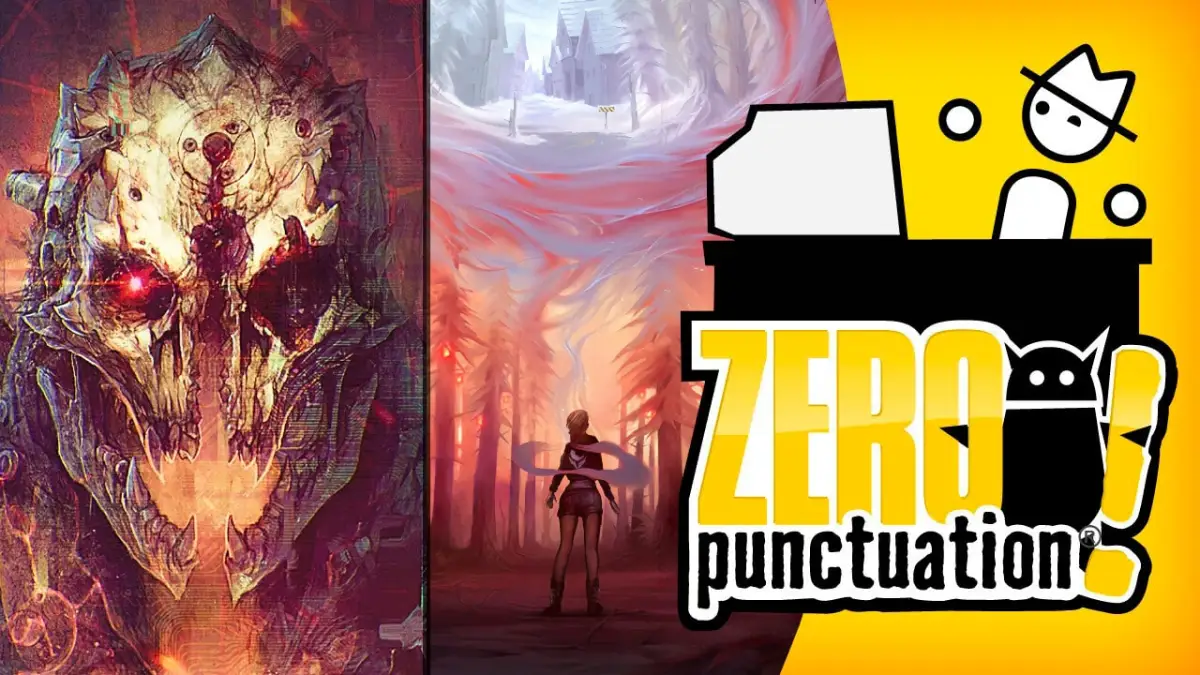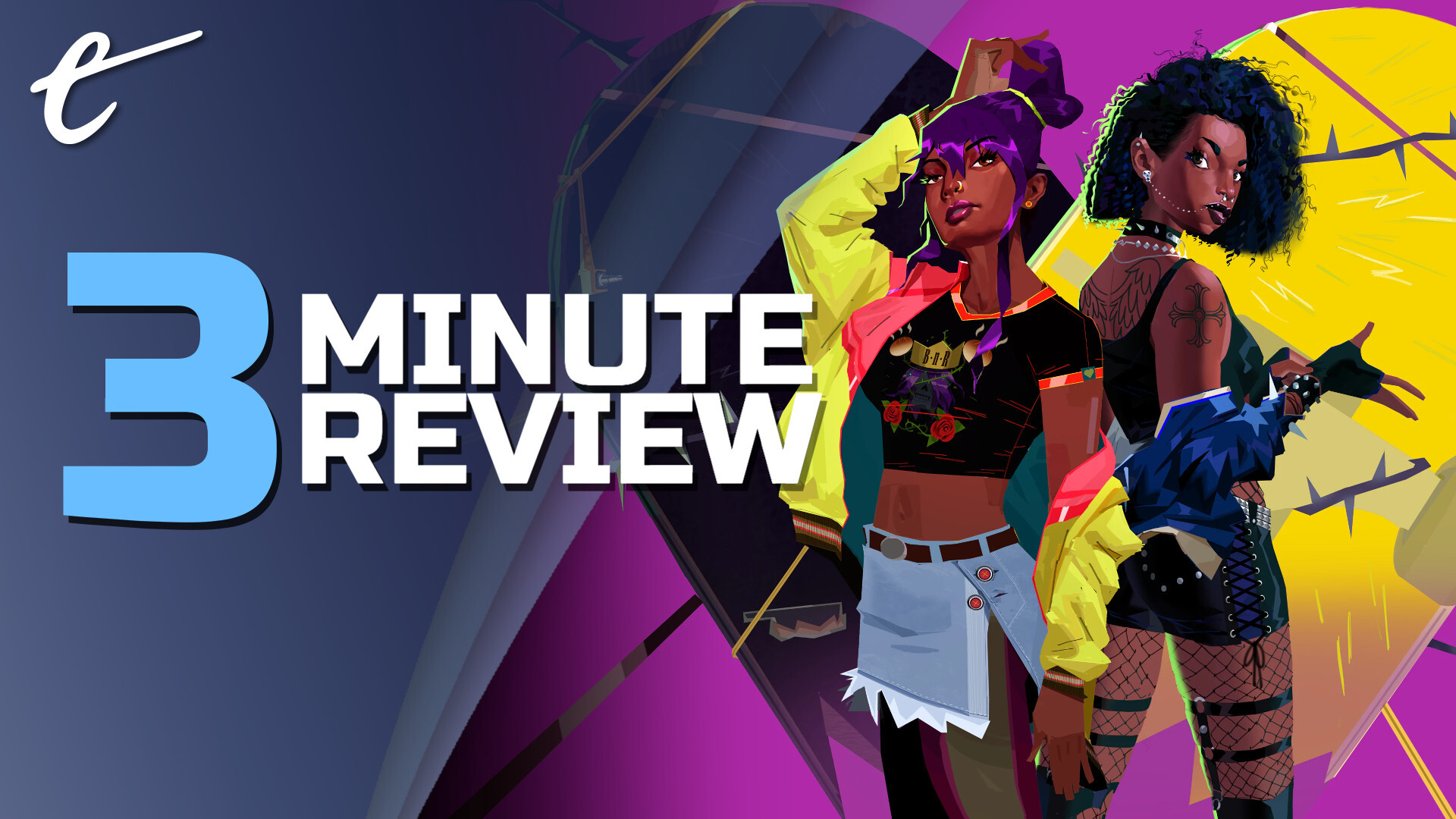Hooray! Drought season’s almost over! Woo! We got through another one without self-harming or playing too much weeb shit, but I repeat myself – yay! Now there’s only disease, poverty, climate disaster and political disenfranchisement to sort out and we can start focussing on the real issues, like developing a controller for a Nintendo console that doesn’t give me old man wrist. But let’s see out another droughty summer with one last indie double bill, focusing on that one special genre that is to indie games what intestinal parasites are to inexpensive Mexican food. Roguelites. Starting with Jupiter Hell. Now, as I’m sure I’ve said before, I’m tragically decrepit enough to remember that period in the 90s when we called every first person shooter a “Doom clone.” And Jupiter Hell made me very nostalgic because it’s a Doom clone, but here’s the twist, you procrastinating twat: it’s not a first person shooter. But it is undeniably a Doom clone. Stop tiktokking your amazed reaction and I will explain how. See, you play as a burly space marine who comes to a tech base deep in the Solar system’s flyover country to find it taken over by demons and zombies and must battle their way through the depths of Hell one fricasseed demonic ballsack at a time.
In other words, it’s Doom. But it’s played in a top down grid-based format that it refers to as turn-based but in the sense of those old Ultima games where the monsters were properly raised good little boys who politely waited for you to do something before they all simultaneously did their next thing. Jupiter Hell is, in brief, a love letter to retro PC gaming of that era, which should be obvious from the way it does its entire GUI ASCII-style with a big chunky font that looks like it’s trying to beat my eyeballs to death with pixels. It also can’t be controlled with anything but keyboard, but for me that’s the point where “deliberate retro homage” crosses the line into “just couldn’t be arsed to add controller support.” The experience of Jupiter Hell is creeping your way through dingy hallways until an enemy shows up, then you endeavour to inch your way into cover before they can eat your health away, then you sit there pressing the fire key until they and the nineteen friends they have arranged behind them in single file are all dead. So translating Doom to top down grid based action certainly loses in exciting violent spectacle what it gains in – what the fuck does it gain, actually.
What does Doom have left without the violent in-your-face ballsack distressing catharsis? It’s not exactly survival focussed because I leave most levels fucking ankle deep in the ammo and guns all the enemies dropped that I couldn’t squeeze into the child sized fanny pack my dude brought along. What normally happens in a Jupiter Hell run is that I’ll get enough levels deep for the enemy to finally graduate beyond fun-sized health bars, eventually get overwhelmed by one ambush too many, die, and then feel terribly discouraged because now I have to trudge through all the boring easy early levels again and randomly rearranging the specific layout of samey corridors doesn’t add enough variety to be more worth my time than quitting the game and rearranging my desktop icons. This is the mistake roguelites always make. Who fucking cares if your levels are randomly laid out if the primary gameplay loop is always the same? That’s where the fun lies in procedural design. Maybe the first run spawns me a 9mm pistol and a shotgun but then in the second maybe I have to get by with a hedge trimmer and a pair of magic shoes that spawns really interesting magazines everywhere I go and it’s a completely fresh experience.
Jupiter Hell just isn’t that engaging and the turn-based physics weirds me out every time an enemy mysteriously dies a moment before my rocket hits him, possibly because of vitamin deficiency. Our second Roguelike is Dreamscaper, and this one does remember to have variety in its primary loop. It’s got more weapons than a Palestinian car boot sale – sword, knife, hammer, pool cues, boxing gloves. Well, the game says that’s what they are. Your character’s so tiny-winy on screen she could be swinging around a pair of hairy goat testicles on the end of a serving spoon for all I know. And it doesn’t help that the environmental lighting’s so spotty and we’re doing the Ori and the Blind Forest thing where all the pickups, projectiles and half the random meaningless background details all speak the universal language of nondescript glowing blob. Including your bombs, which explode with all the cathartic impact and destruction of a playful mouse jumping into a bowl of glitter. Dreamscalper is a very Binding of Isaac-y affair, much the same kind of room by room treasure hunting, keys, bombs, secret rooms, boss fights business, thankfully with not quite as much poo.
It does, however, throw an awful lot at you right off the bat. Light attacks, heavy attacks, ranged attacks, magic attacks, parry attacks, homeowner tax, there are about half as many enemy types as there are ways to kill them. And don’t forget to use your slow motion power so your clunky and unsatisfying standard attacks can get twice as much clunky and unsatisfying. So far, so standard. The real selling point of Dreamcatcher is the premise. You’re a lady who’s moved to a new city from a small town strugging to get by and make new friends, and when you go to sleep at night you go on a roguelite action adventure through labyrinths based on the memories of your life, fighting boss fights against symbolic demons with names like “Fear” and “Regret” and “Isolation” and oh my goodness my hand is reflexively making the wanker gesture. See, I was drawn to it from the description saying how the main character has to work on her relationships in the real world to improve her abilities in fantasy battle dreamland, which made me think “Ooh, sounds like Persona! That shit’s my jam, as in jam my dick inside it and make several terrifying babies.
But in practice it’s not that engaging. Our protagonist whose name I forget makes friends with various flavours of hipster when they smell her aura of pretentiousness and recognise one of their own. Then they have a conversation that sounds like something from an overwritten student webcomic from the 2010s and that night you get plus 5% attack on all potato-based damage or something equally not worth it. What might have helped is if all the characters weren’t depicted as faceless wooden dollies who summon glowing words over their heads to speak. Feels like you’re asking me to emotionally engage with the struggles of two ornamental toilet roll holders. I’m grouping Sega Dreamcaster with Sea of Solitude under the heading “Arty indie games about people who need to get the fuck over themselves.” What’s so fucking hard about the protagonist’s life that they need to fight symbolic fantasy battles in the dream world about it? Admittedly I didn’t get to the last levels maybe it turns out she accidentally impaled her sister on a Twix or something but I’d expect her dreams to get to that point quicker if that were the case. Jesus Christ, what symbolic monsters do you think homeless orphans in Yemen dream about? Trick question, they don’t dream about anything ‘cos the secessionist terror keeps waking them up.






Published: Aug 18, 2021 5:00 PM UTC